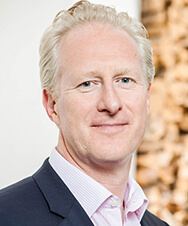Research and articles abound on the benefits of face-to-face events, including how they provide truly authentic experiences. But have they become even more valuable in the “fake news” era? Russ Lidstone, CEO of The Creative Engagement Group, says they have and notes that when real people speak, there are no edits, no retakes, and no Twitter-fed agendas.

Russ Lidstone
“Live meetings present an opportunity for people to see the ‘whites of the eyes’ — where body language, confidence, tone of voice, and most importantly, a sense of integrity, are harder to fake,” he said. “Expanding on this authenticity, at live events you have the chance to challenge, to debate, to discuss, with live answers there and then — it’s fast, it’s truthful, it’s raw, and it’s authentic.”
That’s the opposite of fake news, a term most frequently used to describe fabricated stories that appear in the news media or on social media, where the line between opinions and facts is often blurred.
In the 2019 Edelman Trust Barometer — an annual global online survey measuring trust across various institutions, sectors, and regions — 73 percent of respondents said they worry about false information or fake news being used as a weapon.
Lidstone pointed out that it’s easier to lie or stretch the truth in spaces like social and other media where readers can challenge what’s written, but the author doesn’t have to respond. That’s why, Lidstone said, live events have more credibility. They are ideally places for conversations that are face to face, not one-way broadcasts.
He added that event companies need to ensure their platform remains honest and provide options for audiences to have a two-way dialogue.

Kristina McCoobery
Kristina McCoobery, COO at INVNT said that fake news can be a challenge for the events industry when it involves the sharing of false information about defining aspects of an event, such as the host venue and its capacity, talent lineup, content, program, ticketing, and timing.
“Tackle these challenges by having a robust communications plan in place,” she said. “Ensure all event details are prominently displayed on your event website, regularly promoted across the event’s social media platforms, distributed via email marketing to both those who have already registered and prospects, and shared with key media via press releases and distribution platforms.”
It’s also important to keep an eye on all relevant media coverage and social commentary. At a minimum, experts say, planners should set up Google alerts for keywords that are most relevant to their event. Consider contacting anyone who includes inaccuracies in their articles or social content swiftly, politely requesting that they amend the content in line with the event’s official facts.

Barbara Calderwood
Barbara Calderwood, divisional director of associations at MCI UK, adds that event planners’ messaging needs to be trusted, true, and simple.
“Digital marketers must feed news to build a solid and committed community, and we must react with care in our messaging, particularly when we are faced with challenges around participation,” she said. “Through trust, loyalty is established and must never be taken for granted.”
